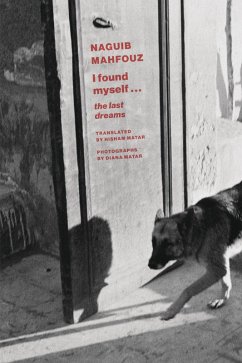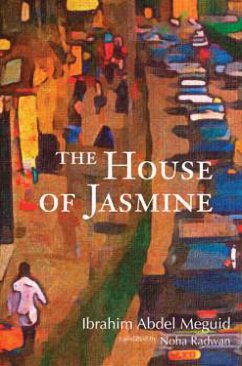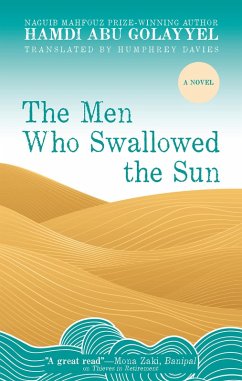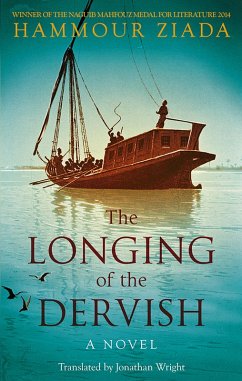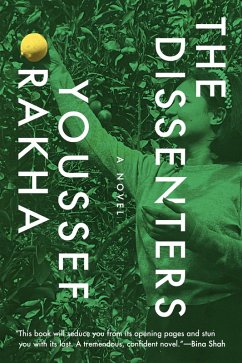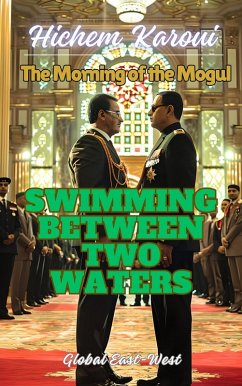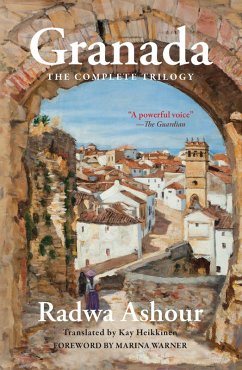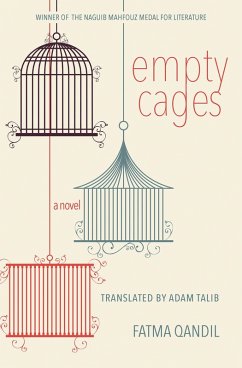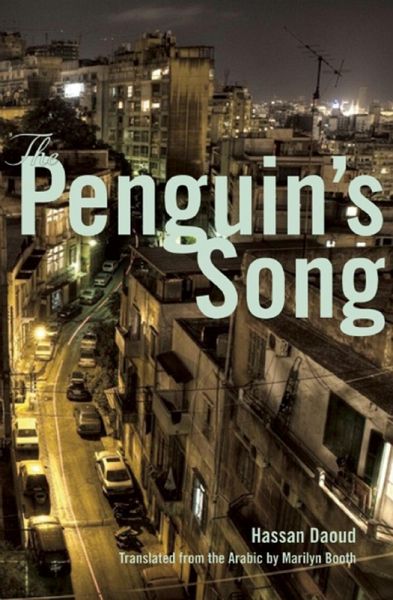
The Penguin's Song (eBook, ePUB)
Versandkostenfrei!
Sofort per Download lieferbar
8,95 €
inkl. MwSt.
Weitere Ausgaben:

PAYBACK Punkte
4 °P sammeln!
"I loved this book when I read it in Arabic. The Penguin's Song is a classic novel of the Lebanese civil war."--Rabih Alameddine, author of An Unnecessary Woman"Sixteen years after appearing in Daoud's native Lebanon, this elegiac novel has finally arrived in English . . . Daoud's novel seems to have inherted its sensibilities--its recursive and dense sentences, its damaged narrator, its poignant obsession with lost time--from Remembrance of Things Past or Notes From the Underground. . . . This is a novel about the trap of poverty--but also an affirmation of the Underground Man's noted maxim: ...
"I loved this book when I read it in Arabic. The Penguin's Song is a classic novel of the Lebanese civil war."--Rabih Alameddine, author of An Unnecessary Woman
"Sixteen years after appearing in Daoud's native Lebanon, this elegiac novel has finally arrived in English . . . Daoud's novel seems to have inherted its sensibilities--its recursive and dense sentences, its damaged narrator, its poignant obsession with lost time--from Remembrance of Things Past or Notes From the Underground. . . . This is a novel about the trap of poverty--but also an affirmation of the Underground Man's noted maxim: 'I swear, gentlemen, that to be too conscious is an illness.'"--Paul Toutonghi, The New York Times Book Review
"In The Penguin's Song, a city falls, a father dies, two women walk the same road over and over, a boy with a broken body dreams of love. Like Agota Kristof's Notebook Trilogy, this spare yet lyrical parable tells us more about exile, loss and the wearing away of hope than most us want to know. I love this beautiful book."--Rebecca Brown, author of American Romances and The End of Youth
"Daoud's novel is an elegiac account of loneliness and separation. . . . This is a haunting story inhabited by the ghosts of past lives and demolished buildings, where desires are left unfulfilled and loneliness sweeps through every soul."--Publishers Weekly
"Daoud's claustrophobic novel hauntingly conveys one family's isolation after being relocated during the Lebanese civil war. . . . Daoud's evocation of history as it is experienced is excellent. His characters live through momentous events, but their struggles to survive land them in a kind of purgatory. A novel that defies expectations as it summons up the displacement and dehumanization that can come with war."--Kirkus Reviews
" . . . deftly explores how people cope with the aftermath of war and the tremendous struggle of rebuilding not only with bricks and concrete but with heart, hopes, and dreams."--Lisa Rohrbaugh, Leetonia Community P.L., OH, and Library Journal
"Hassan Daoud is one of Lebanon's most important living writers. With her usual empathy and elegance, veteran translator Marilyn Booth brings out the idiosyncrasies and pathetic charm of this unlikely protagonist in his suffocating world. This is a heartbreaking novel that shines a light with empathy onto small lives lived humbly on the margins."--Max Weiss, Professor of History and Near Eastern Studies, Princeton University and author of In the Shadow of Sectarianism: Law, Shi'ism and the Making of Modern Lebanon
As war wreaks havoc on the historic heart of Beirut, tenants of the old city are pushed to the margins and obliged to live on the surrounding hillsides, where it seems they will stay forever, waiting. The dream of return becomes a way of life in the unending time of war.
"The Penguin" is a physically deformed young man who lives with his aging mother and father in one of the "temporary" buildings. His father spends his days on the balcony of their apartment, looking at the far-off city and pining for his lost way of life. Mother and father both find their purpose each day in worrying about the future for their son, while he spends his time in an erotic fantasy world, centered on a young woman who lives in the apartment below. Poverty and family crisis go hand in hand as the young man struggles with his isolation and unfulfilled sexual longing.
Voted "The Best Arabic Novel of the Year" when it was first published, The Penguin's Song is a finely wrought parable of how one can live out an entire life in the dream of returning to another.
"Sixteen years after appearing in Daoud's native Lebanon, this elegiac novel has finally arrived in English . . . Daoud's novel seems to have inherted its sensibilities--its recursive and dense sentences, its damaged narrator, its poignant obsession with lost time--from Remembrance of Things Past or Notes From the Underground. . . . This is a novel about the trap of poverty--but also an affirmation of the Underground Man's noted maxim: 'I swear, gentlemen, that to be too conscious is an illness.'"--Paul Toutonghi, The New York Times Book Review
"In The Penguin's Song, a city falls, a father dies, two women walk the same road over and over, a boy with a broken body dreams of love. Like Agota Kristof's Notebook Trilogy, this spare yet lyrical parable tells us more about exile, loss and the wearing away of hope than most us want to know. I love this beautiful book."--Rebecca Brown, author of American Romances and The End of Youth
"Daoud's novel is an elegiac account of loneliness and separation. . . . This is a haunting story inhabited by the ghosts of past lives and demolished buildings, where desires are left unfulfilled and loneliness sweeps through every soul."--Publishers Weekly
"Daoud's claustrophobic novel hauntingly conveys one family's isolation after being relocated during the Lebanese civil war. . . . Daoud's evocation of history as it is experienced is excellent. His characters live through momentous events, but their struggles to survive land them in a kind of purgatory. A novel that defies expectations as it summons up the displacement and dehumanization that can come with war."--Kirkus Reviews
" . . . deftly explores how people cope with the aftermath of war and the tremendous struggle of rebuilding not only with bricks and concrete but with heart, hopes, and dreams."--Lisa Rohrbaugh, Leetonia Community P.L., OH, and Library Journal
"Hassan Daoud is one of Lebanon's most important living writers. With her usual empathy and elegance, veteran translator Marilyn Booth brings out the idiosyncrasies and pathetic charm of this unlikely protagonist in his suffocating world. This is a heartbreaking novel that shines a light with empathy onto small lives lived humbly on the margins."--Max Weiss, Professor of History and Near Eastern Studies, Princeton University and author of In the Shadow of Sectarianism: Law, Shi'ism and the Making of Modern Lebanon
As war wreaks havoc on the historic heart of Beirut, tenants of the old city are pushed to the margins and obliged to live on the surrounding hillsides, where it seems they will stay forever, waiting. The dream of return becomes a way of life in the unending time of war.
"The Penguin" is a physically deformed young man who lives with his aging mother and father in one of the "temporary" buildings. His father spends his days on the balcony of their apartment, looking at the far-off city and pining for his lost way of life. Mother and father both find their purpose each day in worrying about the future for their son, while he spends his time in an erotic fantasy world, centered on a young woman who lives in the apartment below. Poverty and family crisis go hand in hand as the young man struggles with his isolation and unfulfilled sexual longing.
Voted "The Best Arabic Novel of the Year" when it was first published, The Penguin's Song is a finely wrought parable of how one can live out an entire life in the dream of returning to another.
Dieser Download kann aus rechtlichen Gründen nur mit Rechnungsadresse in A, D ausgeliefert werden.




